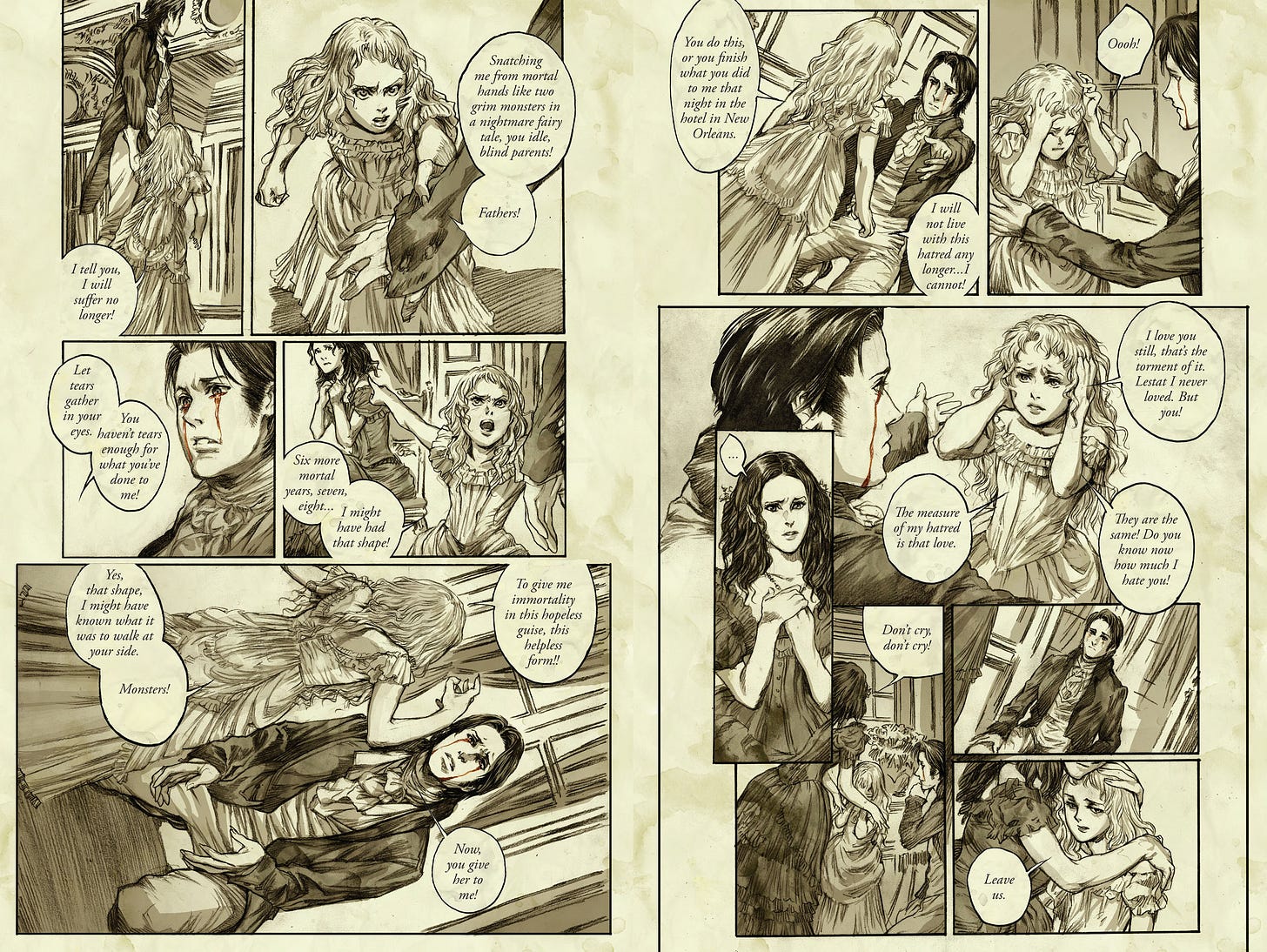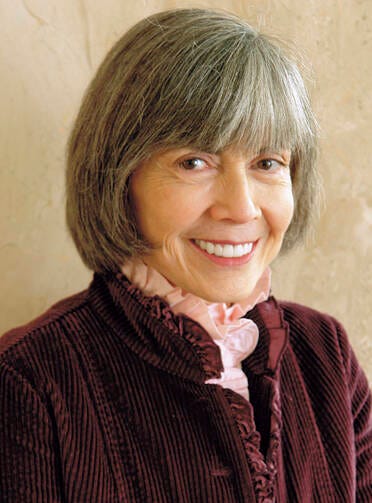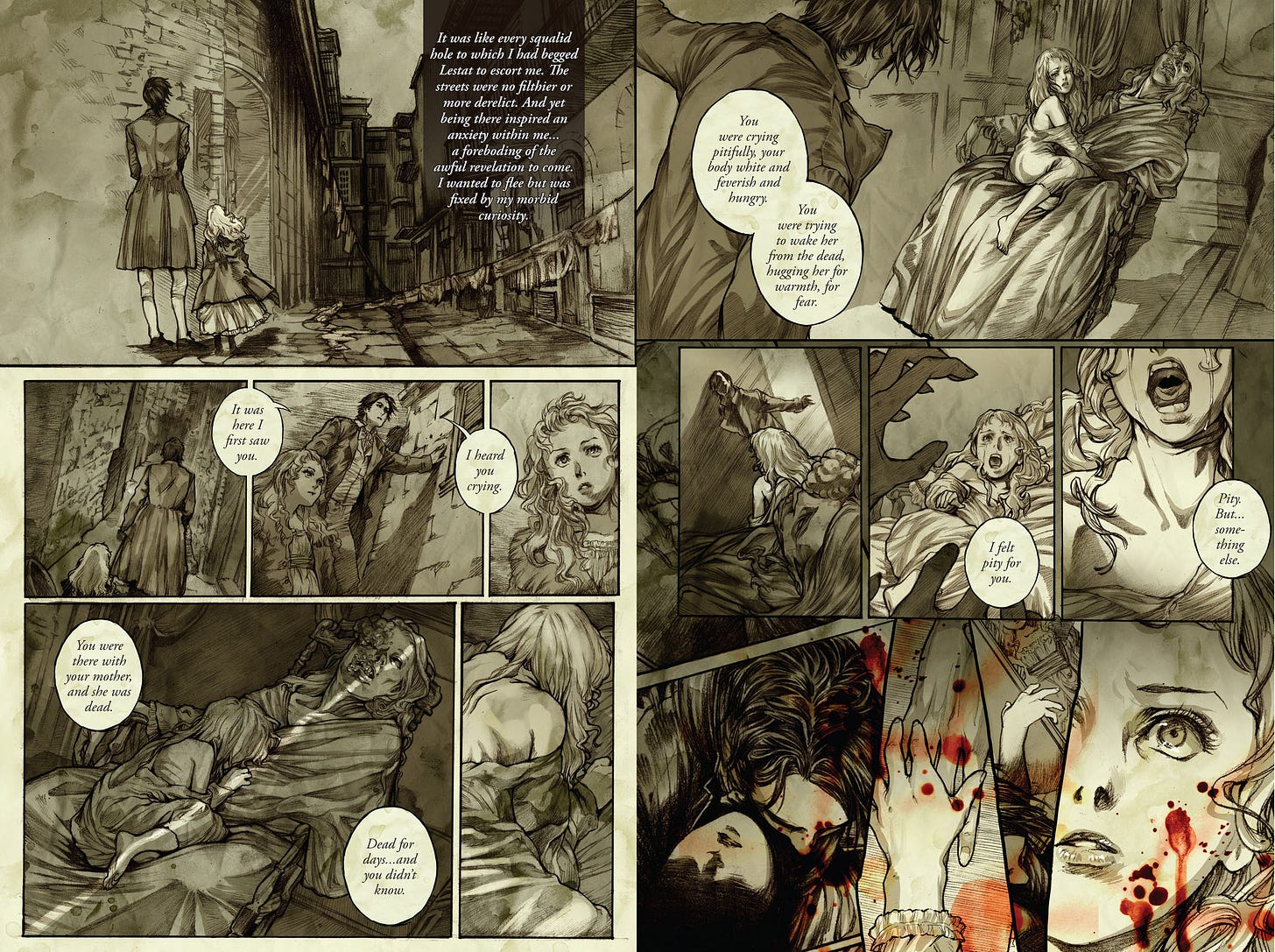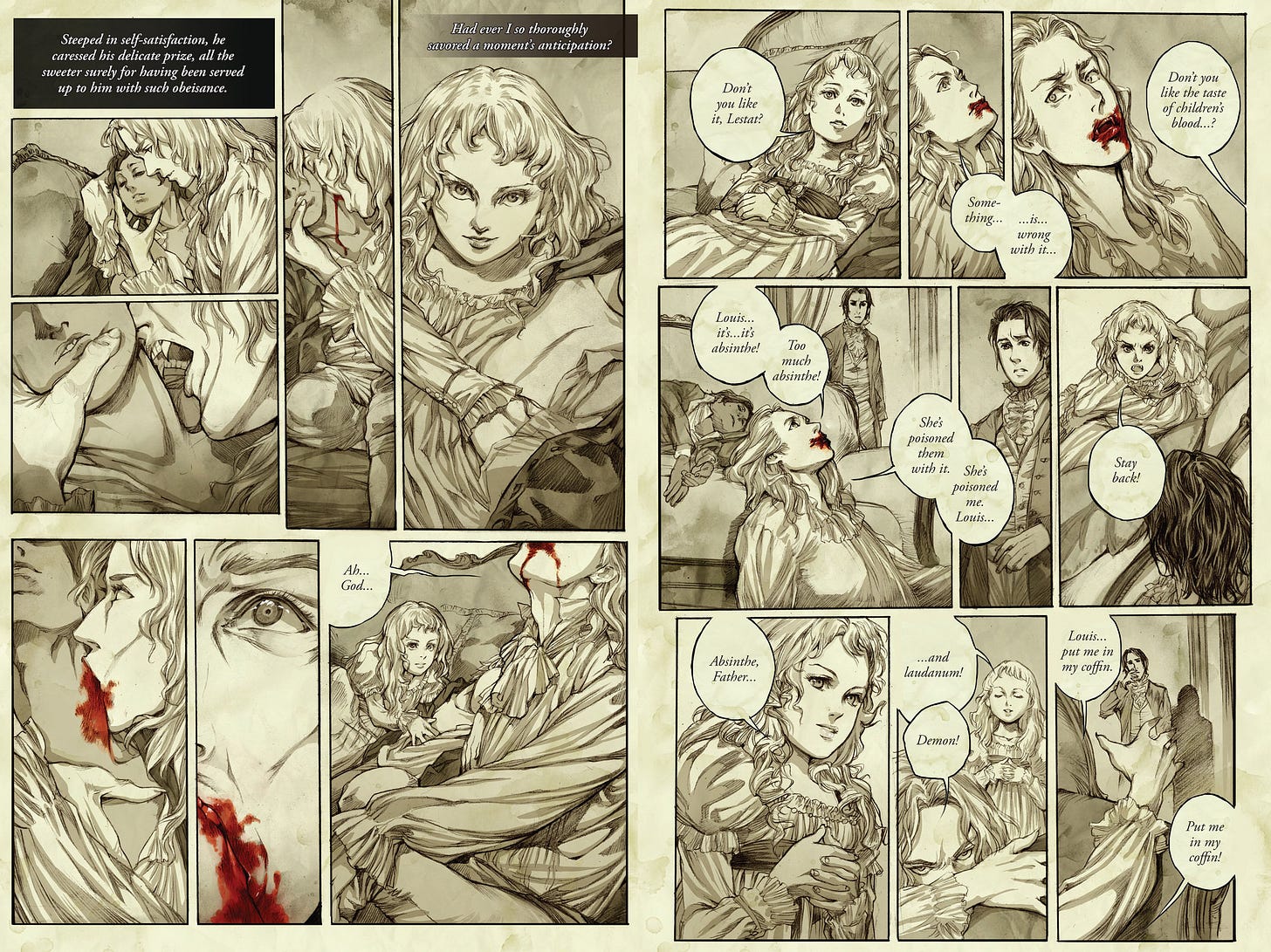An interview with Anne Rice 🧛🏻♀️
Author of Interview with the Vampire and the Vampire Chronicles
This week for IF YOU GO AWAY I’m dusting off an interview from the vaults, conducted with Anne Rice back in December 2012.
Anne Rice (1941 – 2021) was an American author best known for writing The Vampire Chronicles, the first volume of which was famously adapted into the film Interview with the Vampire (1994). Her novels have sold over 100-million copies, chronicling the lives and lineage of vampires, witches, mummies, werewolves and even Jesus. She wrote in a dense, maximalist style, never afraid to take time bringing her worlds to life.
I can’t claim to have read many of her novels, or if I did it was twenty years ago and I can’t remember how many of the vampire series I managed to get through, but there’s no escaping the impact of her work. You could make an argument that Anne Rice’s approach to sexuality and erotica predated and paved the way for the overtly sexual trends in fiction that currently dominate BookTok.
Marketing terms like Romantasy weren’t widely recognised for most of Rice’s life as an author and had none of the collateral in the early days that they do now in the 2020s, but Rice spent a lot of her career writing sweeping fantasies that adopted the trappings of Gothic horror to tell tales of doomed and forbidden romance.
When I interviewed Rice over a decade ago, we touched on the popularity of Paranormal Romance as a genre concept. I used to run reading groups for teenagers in a public library around the time that Stephanie Meyer’s Twilight series began to peak in popularity.
Based on my interactions with publishers and marketers around that time, it felt like the success of Twilight opened the floodgates for at least ten years of subpar Paranormal Romance fiction where publishers desperately tried to persuade readers to take an interest in more stories about first vampires and Buffy rip-offs, then werewolves and ghosts, then angels and demons, all to diminishing returns. It turned out that people loved Twilight because it was Twilight, not because it was a teen human-vampire Paranormal Romance.
Nobody queued up to make angel romances the next all-consuming pop-culture phenomenon, but again, Anne Rice anticipated the audience for Paranormal Romance and Romantasy before publishers coined terms to sell them and before BookTok existed to connect eager readers to her novels.
The continued relevance and popularity of Rice’s work makes it likely that we’ll continue to see her stories adapted and retold for many years to come.
An Interview with Anne Rice
First published December 2012 in the pages of Starburst Magazine issue 383.
Anne Rice, born in 1941, is the author of more than thirty novels, spanning subjects as diverse as gothic horror, Christian mythology and erotica. Her Vampire Chronicles have probably directly influenced more living authors than Bram Stoker, Edgar Allen Poe and H P Lovecraft combined, with a film adaptation of Interview with the Vampire that was so universally loved that nobody blamed her for the travesty that was Queen of the Damned. (Note - I’ve reprinted this intro in full but have no idea why I said it. I have no memory of ever watching Queen of the Damned, but was extremely sleep deprived in 2012 and only a couple of years into what became at least a decade of brutal and prolonged sleep deprivation.)
Almost 35 years after the publication of Interview with the Vampire Anne has taken time out of her prolific schedule to speak to Starburst Magazine about the new graphic novel adaptation, Interview with the Vampire: Claudia’s Story, and how she feels about the proliferation of Paranormal Romance.
When it comes to adaptations of your stories, do you like to maintain control over the material or do you feel happy for other artists to develop their own interpretations?
On adaptations, I don't try to maintain tight control. I seek to approve of the entity before I grant the right to adapt. But with Yen (Yen Press, the American publishers of Claudia’s Story and also the far-inferior Twilight manga!) and Claudia's Story, I did see the artwork and found it beautiful and found the adaptation faithful. I am happy for the adaptors to develop their own approach, but do very much want fidelity to the underlying work. Yen was very respectful of Interview with the Vampire in doing this.
Did it feel strange to return to Interview with the Vampire after all this time, or would you say that the Vampire Chronicles have kept you close to those characters?
I'm always close to the Vampire Chronicles, to the characters, and to the reader's responses. We talk about them all the time on my Facebook page, and we are always seeking to develop film rights. Interview with the Vampire is ever present in my mind. And lately, I've been re-reading the entire series.
How did you feel about Ashley Marie Witter's style of art in Claudia's Story?
I thought Ashley's style of art was breath-taking. She caught the sensuality of the book, the 19th century decor and costuming, the whole "style" and ambience of Interview with the Vampire. Her work is some of the best I've ever seen in the graphic novel field.
If this graphic novel is successful what other stories would you look to for similar adaptations? I adored Claudia's Story, but having read Interview with the Vampire so many times I'm now longing to read adaptations of tales in the Vampire Chronicles that I haven't got to yet.
I would love to see all the Vampire Chronicles adapted for graphic novels, and all my books, really. I particularly love the graphic novel form, and always have. I loved the old Sherlock Holmes stories in the Strand magazine with their famous ink drawings of Holmes in his deer stalker hat. I love the whole Dickensian idea of reaching the masses with new adaptations. I wish modern novels used lavish illustrations. I would love it if every single book of mine were illustrated.
Where do you stand on the proliferation of the Paranormal Romance genre and the many descendants of your early prose?
I'm not surprised that we've had a resurgence of paranormal romance. I think the audience was always underestimated and underserved. The hunger for good supernatural stories has always been there. And now the audience is being heard and respected. Also the concept of the vampire is so rich and deep that it is not surprising people are developing new vampire characters and new cosmologies.
I think this is all good. I've always loved imaginative fiction and written highly speculative and imaginative fiction. I remember when pedestrian realism dominated the "serious" fiction market, and there was no room for people like me. I'm glad now that it is a whole new world.
Looking back on your career with hindsight, is there an area of writing that you wish you had devoted more time to? Or is it the case that you remedy feelings like that with the novels that you're currently writing?
Well, I usually write what obsesses me. So I've had many twists and turns, and I am always revisiting my old work, and looking for ways to add to what I've done. I might be writing more of the Christ the Lord series in the future; and certainly I will write more of the Songs of the Seraphim with Toby O'Dare. And I've just started with the Wolf Gift and the werewolves. I am an enthusiast and an excessive person, and I am always experimenting.
You might also enjoy
Vampires and Mormons 🦇✝️
Reviews of Robert Eggers’ remake of Nosferatu and a live performance of The Book of Mormon.
Love Will Tear Us Apart
LOVE WILL TEAR US APART is a 48-page adult horror comic about zombies and fatherhood. The anthology includes the 30-page comic strip LOVE WILL TEAR US APART, short story DRINKING BLEACH INSTEAD, plus exclusive pin-ups and a rundown of the top zombie songs of all time by cult horror host Tomb Dragomir.











Great interview subject wow! Nice one